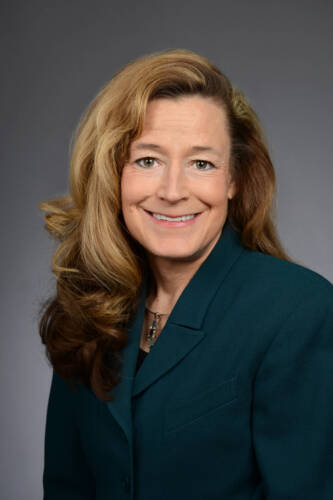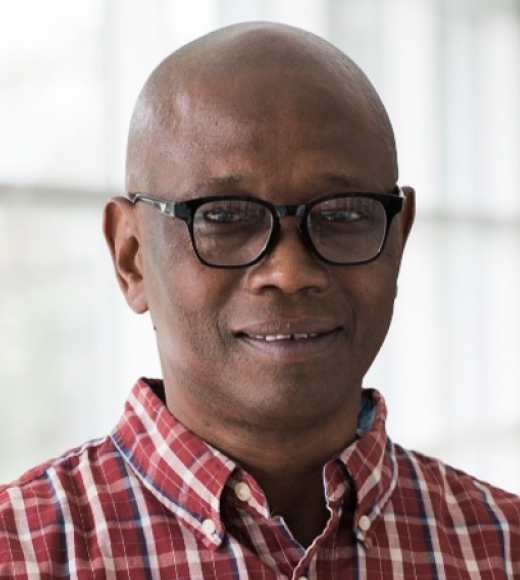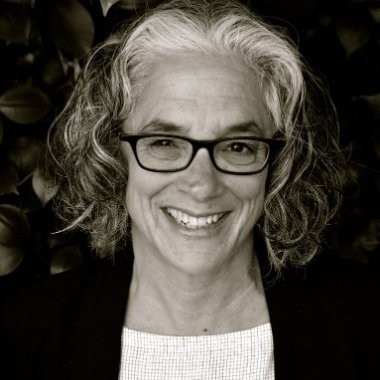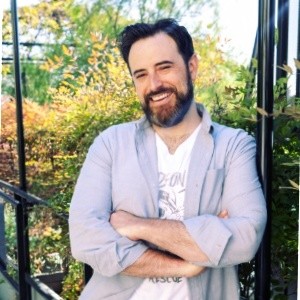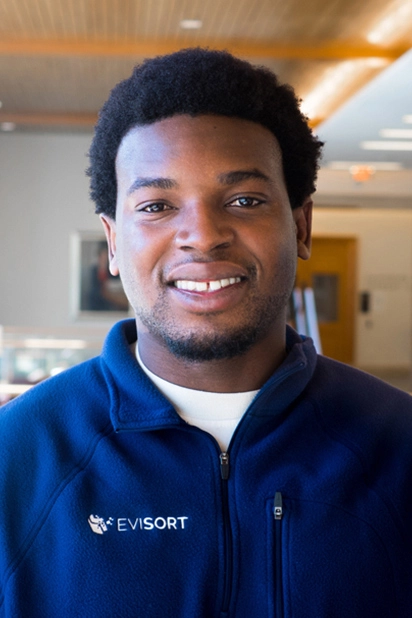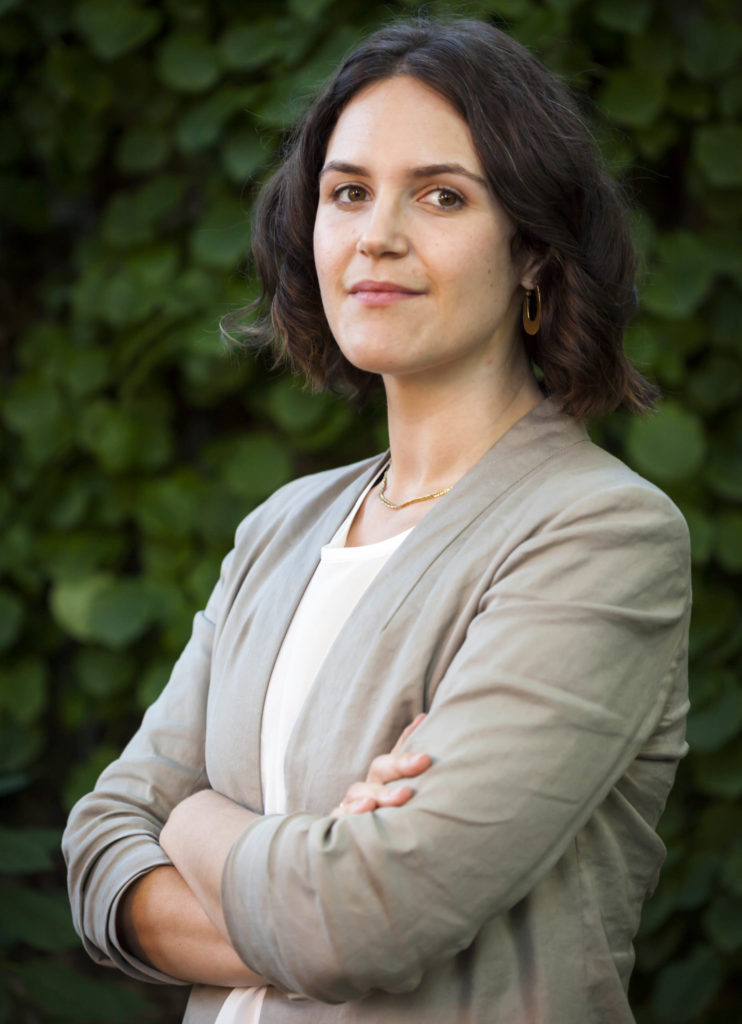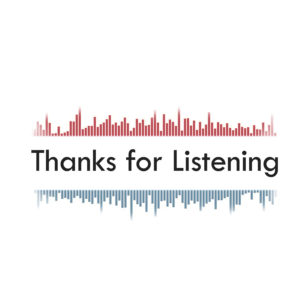
Welcome to the tenth episode of our podcast, Thanks for Listening!
What’s the most partisan group in the U.S. today? If you answered the United States Congress, you’ve got company. Recent polling puts Congress’s disapproval rating among Americans at 71%, with 60% ranking partisan bickering, gridlock, and caring about politics more than the country as their top complaints about Congress. Our guest is working to change that—from the inside out. Congressman Dean Phillips is a Freshman Democrat representing Minnesota’s 3rd District. Join us as Congressman Phillips reflects on the critical importance of listening (both in his home district and in the halls of Congress), some of the institutional barriers to change, and the inspiring work of the Problem Solvers Caucus, a group of 25 Republicans and 25 Democrats committed to bridging the partisan divide and restoring deliberative democracy to the U.S. House of Representatives.
![]()
Thanks for Listening is a podcast tracking efforts to bridge the political divide in the U.S. through dialogue and collaborative processes and spotlighting the important and often courageous work of individuals and organizations who are helping citizens engage with one another on challenging topics. We hope that through the everyday examples of ordinary and extraordinary people all over the country, listeners will find optimism that we can—and are—moving beyond partisan divides, as well as inspiration to become part of the solution. This podcast is made possible with a grant from the American Arbitration Association International Centre for Dispute Resolution Foundation.
Hosts

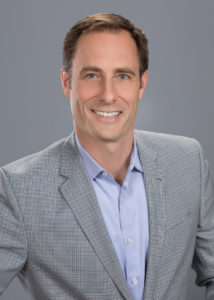
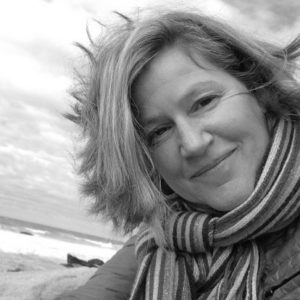
Sara del Nido Budish Neil McGaraghan Kate Ellis
Host Host Producer
Guest
 Minnesota Rep. Dean Phillips is a father, businessman, civic leader, and Representative for Minnesota’s Third Congressional District elected in 2018.
Minnesota Rep. Dean Phillips is a father, businessman, civic leader, and Representative for Minnesota’s Third Congressional District elected in 2018.
A Gold Star Son who lost his birth father, Artie, in the Vietnam War, Dean was adopted into the Phillips family who raised Dean to work hard and always share success. Dean earned a BA from Brown University and an MBA from the University of Minnesota’s Carlson School of Business. After working at a variety of startup businesses, he joined his family business, Phillips Distilling, which he eventually led. He later co-owned and helped build Talenti Gelato into one of the top-selling ice cream brands in the country. He is now co-owner of Penny’s Coffee, a small business with four locations and more on the way.
In Congress, Dean is focused on campaign finance, electoral, and ethics reforms, and addressing healthcare costs, global climate change, and our nation’s gun violence epidemic. He is a member of the House Ethics, Financial Services, and Foreign Affairs Committees, as well as the Democracy Reform Task Force, Gun Violence Prevention Task Force and Problem Solvers Caucus.
Resources
U.S. Congressman Dean Phillips
Transcript
Sara del Nido Budish [00:00:10] From the Harvard Negotiation and Mediation Clinical Program, I’m Sara del Nido Budish.
Neil McGaraghan [00:00:14] I’m Neil McGaraghan, and this is thanks for listening to a podcast about bridging the partisan divide in America.
Sara [00:00:20] Hi, Neil.
Neil [00:00:21] Oh, hey, Sarah. Hey, you know what this is, right?
Sara [00:00:25] I do. I do. It is our 10th episode. The final episode in a series that we set out to do that would dig into the partisan divide in this country, how and where it shows up, what it means and how people are working to bridge divides in their community and in the country as a whole. Across the first nine episodes, our focus has primarily been on ordinary people, essentially people who could be our neighbors and are neighbors. Our guests have been activists, academics, facilitators, high school students, all of whom have extraordinary stories and all of whom are working to strengthen the ordinary institutions of our daily lives. They’re tackling divides within families and communities between rural communities from Massachusetts and Kentucky, in schools and digital communities as well.
Neil [00:01:08] Now, on this episode, we tackle a partisan beast of a different kind. The United States Congress. Taking a look at it from afar, it’s easy to have the impression that partisanship isn’t just a symptom of what’s wrong with Washington, that it’s actually a requirement of membership. And recent [00:01:24]Gallup polling [0.4s] found that Congress has a 71 percent disapproval rating among Americans with fully 60 percent of people ranking partisan bickering, gridlock and caring about politics more than country as their top complaints about Congress. It’s enough to make a person think that the institution is beyond salvation.
Sara [00:01:42] But not so fast. Our guest today says that there is reason to be optimistic and his perspective might be as sounds as anyone’s. He is working to make a difference from the inside. Congressman Dean Phillips represents Minnesota’s 3rd congressional district, a so-called purple district that had been represented by a Republican for 50 years until Congressman Phillips won the seat in 2018.
Neil [00:02:01] Congressman Phillips, whom I know better as my college friend and roommate Dean, joined us by Zoom to explain how he’s working to bridge divides in Congress and in his own district. Representative Phillips, Dean, welcome to the podcast.
Dean Phillips [00:02:14] Hey, Neil, great to be with you and Sara. I’m honored. Thank you.
Neil [00:02:17] So you have made a very sort of important part of your role, your public facing role, and I think sort of the way you handle yourself privately too, you’ve made listening a key part of what it means to be a member of Congress and to represent your constituents. Actually, so you’ve got this great annual report that you put out one year into your first term in office and page one includes the tag line “representation begins with listening,” followed immediately by “bridging the divide.” So these things, that’s what we talk about on this show. So you are a perfect person for us to talk to. And I guess the to start the conversation, the question for you is why make that such a big focus of your role? Why is that so important to you?
Dean [00:03:01] You know, Neil, listening is the first lesson we’re taught in our homes when we’re being raised. It’s taught in kindergarten. And ironically, it’s these lessons, some of the very first lessons that we learn as children, that people are forgetting in some of the most important decision-making bodies in the world, including the U.S. Congress. And my father used to tell me growing up that if two people always agree, you only need one of them. And there’s some truth to that. And, you know, you don’t learn the people who see things the same way as you pray the same way and eat the same way and think the same way. You learn things from people who live different life experiences have different perspectives, and that is from that mosaic that enriches life. And I’ve been trying to inject a little bit of that into a place that needs a whole lot of it.
Sara [00:03:49] So tell us a little bit about your district. It’s a purple district, right. So what are the ways in which you try to integrate opportunities for listening into your interaction with the community?
Dean [00:04:03] You know, Sara, the district I represent, which is Minnesota’s third, which is suburban, the western suburbs of Minneapolis, it’s one of the very few true purple districts left in the country. Gerrymandering has all but eliminated really competitive districts in which people often will split their ticket when it comes to elections. And you have almost an equal mix of Democrats, Republicans and Independents. And it’s one of those few districts in which listening is rewarded, not punished. You know, I was tired of seeing so many representatives feel that they were doing their jobs by representing 50.1 percent of the people that live in their district. And that, to me, is antithetical to what representation means. It’s a responsibility to broaden that. My campaign slogan is “everyone’s invited.” And it’s not just a slogan, it’s an ethos. And even the first asset I bought for my campaign was a 1960 International Harvester Metro Van, we call it the government repair truck. And I drove it into different parts of my district, particularly the ones that were least hospitable to Democrats. I served lemonade, coffee, and just simply invited people to come say hello and hear what’s on their minds. And that was really the foundation for our campaign. And the truth is, I wish that more districts in the country were constructed as such so that Democrats and Republicans were rewarded for broadening their base, for listening more and for extending more invitations. Instead we’re rewarded for confrontation. And that is perhaps at the root of our greatest problems in our politics.
Neil [00:05:38] So that touches, Dean, on a couple of, well, a lot of things, but two in particular that I hope we can get to over the course of the next bit of time that we have together. But so one of them is this idea of taking to Congress everything that you learned from the people in your district. And no matter what their [00:05:53]political stripe. [0.4s] But to hear what your district needs and what people want and what people’s concerns are across the board and to bring those things with you to Congress. And then another thing is, it occurs to me, you’ve got this great mix of, as you said, Republicans, Democrats and Independents in your district. What is it like for you as a representative of those constituents to try to bring them together across whatever divides exist? I mean, is that work that you can do on the ground in your district?
Dean [00:06:22] Absolutely, Neil. In fact, you know, you have to do it with intention. It doesn’t happen naturally. And that’s why I’m trying to inspire more around the country, both members of Congress, anybody serving in elected office and most importantly, future candidates to use that as their strategy to bring people together. And when it comes to listening, I should say also that it’s never been easier to do so. It wasn’t long ago before social media that unless you had great intention and made great effort, oftentimes you couldn’t even see your representative or communicate with him or her share your perspective other than a letter that often got a form letter back. Now, it’s through social media, through Zoom. One of the strange benefits of these difficult days is the ability to connect with even more people using platforms that have been available but never really fully executed. And that is, you know, that’s actually one of the joys of this job, because if you don’t listen to people, how the heck can you represent? And if you’re only listening to the loudest voices, which are not often indicative of the more broad consensus or the mass of middle, if you will. Shame on those in certain public office that don’t make it that intention. And that has to be brought as well to Congress. You know, if you only gather with your own in your caucus or your conference, meet with like minded people, you’re going to get into a very small bubble that is just simply not representational of the country in this case. And that’s a real detriment to democracy.
Neil [00:07:49] Yeah. And I actually love… That’s another way of saying something that you kicked off with, which is that great saying that I think you said your father shared with you, which is if you have two people who disagree, you only need, or two people who agree, you only need one of them. And Sara and I, too, like we’ve talked recently with a guest who has that same sort of frame on the work that she does. You need the marketplace of ideas. You need the public square for people to actually disagree. And I’m curious if you’ve got any stories that come to mind of instances where you actually saw the benefit of helping people in your district come together and talk about the things where they disagree on issues but actually can build something positive out of that disagreement.
Dean [00:08:26] Yeah. So, Neil, in my first campaign, which was the 2018 cycle, we made that our intention to, and you asked this earlier and I didn’t fully answer it, but we had to create spaces and places for people to gather because right now we self-congregate, we self-select. We like to be with people. It’s part of the human condition. We tend to congregate with people who look like us again and think like us and pray like us. You name it. So we have to be intentional about creating new spaces. So we did things like a massive picnic to which everyone was invited. We had musical acts that represented a little bit more of a broad cross-section of musical tastes. We had to be intentional. We created essentially a family. A campaign became a family where people who did not know each other, would never have encountered each other, came together under the same umbrella principles and have since become a family. Democrats and Republicans. And I’d say it’s the greatest joy so far of my campaigning is seeing the ability play out in real life. Bringing people together who would on paper be very unkind to one another and on social media had been unkind to each other. Seeing them get to know each other, see where they have common values and shared interests is really a joyful part of this job. But unless you commit to it, unless you build these spaces in places and create that intention, it simply isn’t going to work. And that’s why we’ve got to bring that same, you know, those same mechanisms to Congress, because the systematic separation and segregation, frankly, of the two parties is the greatest threat, I believe, to the future of the country.
Sara [00:10:00] I wanted to ask you about that, because there’s something to me that I can sort of more easily imagine a successful bridging of divides or like sort of learning from each other that you’re talking about in your work facing the community, like the district that you represent. That feels easier to me to envision than kind of bringing that work to Congress, at least in our current, you know, current Congress. So I guess one question is, what do you do when you create a lot of opportunities to listen to your constituents, you’ve heard diverse views, I guess, what goes into your process of kind of synthesizing what you’ve heard and then deciding to take some sort of action in your role in Congress? You know, there’s bound to be a portion of a community that’s going to be pleased with what you do and a portion that’s not. So how do you… Can you walk us through sort of the things that you think about when you weigh those considerations?
Dean [00:10:54] Yeah. And as you might imagine, some of it is through surveying and polling to simply inquire how people are feeling. Sometimes we outsource that. We use social media very aggressively to poll our district, invite people to share a perspective. Of course, old fashioned phone calls and letters and emails we receive as well. And then a lot of it is intuition. You know, the more one spends in his or her district listening to people, the more illuminated one’s perspective becomes. The great problem, of course, is in a system that’s designed to benefit the wealthiest and most connected we again, have to be intentional about seeking perspectives of communities that aren’t as loud and not as well resourced, not as connected to representation. And that’s another joy of this job is discovering in my own backyard the community I’ve lived in my entire life, neighborhoods, communities, constituent groups, interests that I never even knew existed. And that adds… that’s a [00:11:50]creative [0.0s] every time you have one of those conversations that adds perspective and illuminates, you know, what’s important. And, of course, it’s a lot of the big issues, health care and economic opportunity and now safety and security and anti-racism, things that, you know, they’re part of the daily news cycles. But always mixed in there are some perspectives and issues that are not on the national radar screen, and that’s how we… then we bring those to Washington. But again, if you only share those with the ones you congregate with all the time, you can’t get much done, as you both well know. So I’ve made it my intention to spend as much time as I can with my colleagues on the other side of the aisle, because more often than not, Sara, I’m learning from them that they’re hearing the same thing from their constituents. And a great example of this is the first bill that I had signed into law by the President just a couple of weeks ago, which was the PPP Flexibility Act. Paycheck Protection Flexibility Act. I was hearing from our small business owners in my community how disadvantageous some of the rules and covenants were of the program. I was talking to Chip Roy, a Republican from Texas. He and I could not be more ideologically different. I’m the 27th most bipartisan member of Congress he’s the 427th, I think, most bipartisan. He a Republican from Texas. I’m a Democrat from Minnesota. But because we’ve created a friendship, we heard from one another that we’re hearing the same thing in our districts. And we got together, crafted a bill. And lo and behold, two freshmen had a bill signed into law during one of the most challenging times in our nation’s history. So it just goes to show how just a little bit of ear-opening and a little bit of listening can be transformed into action with that intention. But it doesn’t happen unless you’re willing to step a little bit outside of the comfort zone and interact and create trust with people who you’re often told not to.
Neil [00:13:42] I love the story of your cooperation with Chip Roy. And I know you, I mean, well, you said 27th but out of 435 that’s actually very close to the top. You’re one of the most bipartisan legislators in that body. And I love that about what you’ve done there. But I also think it’s incredibly ironic one of the things you said, which is, you know, you create the spaces and places for people to be able to disagree and have conversation. And here you have like the space and the place where that is meant to happen and yet, as you said, like one of the things that is a fundamental challenge to, I mean, democracy really, is the inability of people who are elected to go there and do that job, to take that opportunity and that place and that space to do exactly what it is you’re talking about. So how do you reach out to the Chip Roys and the others? How do you do this as somebody who really cares about bipartisanship in a body that is so… where it’s so challenging to do that?
Dean [00:14:38] You know, Neil, it’s analogous. Let’s use football as an analogy. You might be a Patriots fan. I might be a Vikings fan. And when our teams play each other, and they do sometimes, we’re in opposition. But for the most part, you love the sport. You know the sport of football in this case. And I wish politicians would look at that the same way. Sometimes you’re going to go head to head. But if you don’t have more of a love for the sport and a joy in playing it, in representing and serving, then all is for naught. And I should reflect on the fact that the first day I went to Congress, which, by the way, is very analogous to the first day in high school. You don’t know anybody. You don’t know your way around. And one hundred new members of Congress, Democrats and Republicans, we were put up at a Courtyard Marriott Hotel near the capital. And I thought we would get to know each other. Break bread. Maybe do a ropes course and build some trust with each other.
Neil [00:15:27] Trust falls.
Dean [00:15:29] Yeah, exactly. Alas, we were put on separate buses going to separate events. And that systematic separation between the parties literally started on day one. It’s a failure of leadership. It’s a failure of leadership on both sides of the aisle. And I hold both parties accountable for that because they’re more focused on winning on their teams than they are, you know, the game, if you will. And this is a game of legislation. And I don’t mean to demean either, but that’s how things work right there. So that’s why when I talk about this intention, if you don’t break through those walls, literally, it’s really, really hard to get something done. The best news, though, Neil, is that the first caucus I joined is called the Problem Solvers Caucus. We’re twenty-five Democrats, twenty-five Republicans. Of course, we don’t see things the same way, but that’s the beautiful part about it, because we commit to decency, respect. We do not campaign against one another and we build really trustful bonds of both friendship and professional relationships. And we sit down together in Washington at least once a week for an hour. During quarantine times, we’ve been gathering often three or four times a week, even more deeply engaged than usual. And to your point about how Congress should be working. We are too few. We’re only 50 members right now, but we are operating the way that I believe our founders had intended, which was a place to gather, to share perspective generally with respect, doesn’t mean you agree all the time, but it is actually the only venue in Congress where I’ve see real debate in a thoughtful manner that actually changes people’s minds on occasion. Because, as you know, on the House Floor, things that typically reach the Floor for votes are fully baked. Debate is more for C-SPAN and news clips than it is for actual investigation and deliberation of issues. And I share this because that’s what makes me hopeful. There are the mechanisms in place. We simply need to have rewards and incentives for more people to participate. Right now, there are disincentives, oftentimes, for people to be thoughtful and collaborative. And until we address that, it’s gonna be awfully difficult.
Sara [00:17:34] I would love for you to say more about that, because I’m so glad you brought up the Problem Solvers Caucus. We wanted to ask you about that and if you could tell us more about kind of what you’ve achieved and what you hope to achieve and also sort of what you think it would take to grow that Caucus and grow that culture, really. I mean it’s so fascinating to hear that on day one of your time in Congress that’s when like the separation started. It was such a strong signal of kind of the culture. And so what do you think are really the constraints that people are feeling, the disincentives that are there for this kind of collaboration?
Dean [00:18:07] So, Sara, I think it starts with something we spoke about earlier, which is we need districts throughout the country that are more diverse and more competitive, frankly. And if we had those, we’d see more people, more members of Congress, rewarded for being thoughtful and being collaborative. I also believe in ranked-choice voting. It’s one of the few mechanisms I’ve seen in which a third candidate is no longer a spoiler. A third or fourth or fifth candidate, in some cases, actually become the people that force the one who ultimately wins the election to have to broaden their appeal. So that’s another way to do so. I join Congress with a freshman colleague, Pete Stauber from northern Minnesota, we’re an interesting team because Pete flipped a district that had been Democratic for generations in northern Minnesota up on the Iron Range. I flipped a district that hadn’t seen a Democrat win since 1958. We’d been a suburban Republican district for 60 years, my whole lifetime. And we represented this really significant shift that’s happening demographically and geographically around the country. And when we joined Congress, we both joined the Problem Solvers Caucus together. It’s like Noah’s Ark, a Democrat has to join with a Republican. And furthermore, we realize that even though Pete and I get along very well and we sit at the Problem Solvers table that we had to do something beyond that, which was to inspire our staffs to become engaged. Because as you both know in Congress, members of Congress get a lot of the accolades, but the real heavy lifting is often done by our staff. And they are often in the background. They do not have those same opportunities to engage and connect with, especially those across the aisle. So we worked with Better Angels to put together a program for a half-day retreat for our respective teams to get to know each other. And both his team, Pete’s team, and mine said afterwards it was one of most impactful, provocative hours that they’d had in a long, long time. And another example of, frankly, being surprised and delighted by the fact that when you gather with people who have different life experiences and different perspectives, you come away having gained something. And that’s that [00:20:15]a creative [0.2s] intelligence and compassion I think that we all need to do a little bit more of. And I think it begs the question not just what can Congress do better? These are some ideas, but what can every one of us, what can everybody listening to Thanks for Listening do? What can everybody in the deepest red district and the deepest blue district do to take one step to be a better listener and least understand how life experience creates the lens through which we view the world? And if we can enrich another person’s life by sharing ours, we’ve taken a really important step forward for not just our country, but for democracy overall.
Neil [00:20:50] I’m really glad that you mentioned the story about Better Angels. It’s an organization that we’re both… I think actually today it’s called Braver Angels.
Dean [00:20:57] Yes
Neil [00:20:58] They had to change the name. But in any case, one of the great things about the organization is that it has a method that it’s developed over time to help bring people from across the aisle together and give them opportunities to, like you say, share experience and perspective and learn from each other. And they’ve got enough experience to sort of help people through that really treacherous water, what can be treacherous. It sounds like in the Problem Solvers Caucus you all are sort of making your way together and doing that. You gave your staff the opportunity, your staffs, the opportunity to do that with the guidance of Better Angels. What opportunity is there for an organization like Better Angels to bring members of Congress together for an event exactly like the one that your staffs did? I mean, can you pursue… Is that possible? Is that something that the members can do?
Dean [00:21:47] Darn right it is. In fact, I started having those conversations with my fellow freshmen members of Congress soon after we were sworn in because, despite the fact we come to Congress with very different political agendas and perspectives, we all see collaboration and process as being integral to being successful members. No matter which party you represent. I’ve spoken with fellow freshmen members in particular who recognize that if either of us were ever in a position to lead the Congress, serve in the speaker’s chair or a minority leader seat, that if we came to it with the same intention, same mission of cooperation, how differently we could do things, including mandating some type of an initiative like the Braver Angels initiative. I’ve shared that very proposition with the Committee on Modernization, which is looking at ways to improve how Congress works. Because, at the end of the day Neil, we are an 18th century institution really struggling not to get into the 21st century, but to really 20th century would be a starting point. But we’re operating as we did in many cases hundreds of years ago. That also goes along with how we select committee chairs. We reward tenure without even considering talent or experience. We don’t crowdsource when it comes to selecting leaders in our committees. It often is done from the leadership offices, if you will. So in a real democracy, I think we have to start practicing a little more what we preach. The answer is absolutely we can. It just takes a little bit more intention. It’s not easy to change anything in Congress. In fact, our founders created a system that made change really difficult and it works really well. But I sense a real change in the ethos of new members. We’re generationally younger. We’re bringing a much more diverse experiences to the chamber. And I do think that over time it might not be this Congress it might be the next or the one after. I do think we’re gonna start seeing some changes to make it operate more productively, more deliberatively and ultimately more successfully. And that’s how we start by the human relationships. Because if you don’t do that, nothing will work.
Sara [00:23:57] Well, I love the focus on process as well as substance. And you’re definitely talking to the right people because we’re all in on process as well and the difference that that really does make in addition to bridging the substantive divide. And certainly, you know, I think you’ve shared a lot of reasons for optimism, many of which we, and I’m sure many of our listeners, may not have heard before. So I know we’re wrapping up our time, but I’m curious, just as we close, if there are any other stories, or just sort of experiences that you’ve had that really do give you reason for optimism and should give everyone a reason for hope about Congress.
Dean [00:24:35] So I’ll share a story that really affected me deeply. And it’s a perfect way probably to end our conversation. And it was right after Chairman Elijah Cummings passed away. The revered longtime member of Congress, chairperson of the oversight committee from the Baltimore area, of course. And when he died, there was a beautiful service in the Capitol. All the usual suspects spoke, Mitch McConnell and Nancy Pelosi and Kevin McCarthy and Chuck Schumer. But the last eulogy was delivered by none other than Mark Meadows. Perhaps at that time before, now he is, of course, President Trump’s Chief of Staff, but at that time, one of the most conservative members of Congress, co-founder of the Freedom Caucus, and perhaps the last person most of us in attendance would have imagined would be delivering a eulogy for one of the most liberal members of Congress, Elijah Cummings. And he spoke he issued a beautiful eulogy, spoke through tears, and his last line was perhaps the most memorable. And he said that “the world and our country would be so much better off with more unlikely friendships like the one that they had.” And nothing better sums up what’s possible if people commit to finding common ground and being enriched by different perspectives. And if Mark Meadows and Elijah Cummings could carry on that type of friendship, anybody can. And if anything makes me hopeful, it was that line on that day in Congress. And I think of it almost every morning when I wake up, I think, how can I establish relationships just like the one he spoke about? And if we all commit to that, we’re going to do just fine.
Neil [00:26:14] Wow. Thank you, Dean. I love the story and I love the inspiration that it gives for all of us, but also that you take personal inspiration from that and carry that into your interactions with your colleagues, because, gosh, I agree that if that is something you can replicate, I do think we’ve got a chance. And, I don’t know, I couldn’t thank you enough for taking the time to join us today. It’s been a delight to hear from you. And it’s really great to get the inside insight of somebody who is working hard to change things the way they operate in Congress.
Dean [00:26:43] Well, thank you both for your work. It’s perhaps some of the most important that our country needs right now. And to everybody listening, keep the faith. And if you’re frustrated or fearful, get involved. I did. And it’s the best decision I ever made in my life and can’t wait to see both of you face to face sometime soon.
Neil [00:27:00] Likewise.
Sara [00:27:02] Thank you.
Neil [00:27:10] To many of us observing from the outside, Congress at times, seems irreparably divided. And it goes beyond mere dysfunction. It’s almost as though the people we send there are downright committed to maintaining and deepening the partisan divide. And all that while the issues facing Congress as a whole today are more consequential than ever. On this very day of recording, members of Congress are trying to negotiate a stimulus package that would extend relief to millions of people and directly impact real lives and real livelihoods. So the stakes are super high, and it’s easy to worry that Congress, that Washington, is beyond repair and just not equipped to handle the immense challenges that our country is facing.
Sara [00:27:49] Congressman Phillips and 49 of his House colleagues, 25 Republicans and 25 Democrats, are setting out to prove that that’s not the case. That there are public servants in Congress who believe in the power of putting in time with each other to build trust. And listening to each other and having serious, genuine debate on issues that are critically important to the health and well-being of the country as a whole, not a particular political party or ideology.
Neil [00:28:13] And we don’t want to be Pollyannas about it. That’s a tall order for sure. And 50 members out of 535 across the House and the Senate is a small minority, to be sure, but it’s a great start and they’re already proving that they can have an impact on the way Congress does business. And as inspired as we are by the Problem Solvers Caucus in Congress, we know that for the Caucus to grow and really take root in the way that Congress does its business, ordinary people need to be doing this work in their communities and demanding that their representatives follow suit.
Sara [00:28:43] It occurs to us that as a bookend for our series, the Congressman’s description of his work in the House of Representatives ties together so many of the themes we’ve heard from our guests. That we need to revitalize the village square, where the point is to know each other as humans, to disagree and keep talking so that the best ideas from across the spectrum can help us solve problems. That small groups of people with vastly different perspectives can sit together and talk constructively in order to build something together. That listening, truly listening, to our neighbors is critical to engaging across differences. And that if Congress can do it, we can do it in our living rooms.
Neil [00:29:17] Now, since we began this series in late 2018, the world has changed. Our challenges as a country have rarely been greater. But, improbably, we’re closing this series with a sense of hope. We’ve been awed and inspired by the people we’ve met through these episodes. By their stories, their perspectives, their willingness to roll up their sleeves and help Americans of all stripes engage their differences, even when it’s messy and sometimes because it’s messy.
Sara [00:29:50] For a link to a transcript of this episode and for more information about Congressman Phillips, the Problem Solvers Caucus, Braver Angels or anything else on this or a prior episode, visit our website at hnmcp.law.harvard.edu/podcast. We’re so grateful for the help and support of our colleagues at the Harvard Negotiation and Mediation Clinical Program, especially Tracy Blanchard and Bria Etienne. Thank you to Kate Ellis, our producer, who graciously works with the home podcasting sound quality that we sent her and guided us through this entire process. Theme music is made available to us courtesy of Blue Dot Sessions, and this podcast was made possible by a grant from the American Arbitration Association’s International Center for Dispute Resolution Foundation. And finally, I want to express my gratitude to you, Neil, for going on this journey together. I’ve learned so much from the conversations that we’ve had, both on and off the air, and just really grateful to have gotten the chance to work on this with you.
Neil [00:30:44] Oh Sara thank you so much. And my huge gratitude to you too. Loved doing this project together. And I think I can speak for both of us to say it’s been a pleasure not just working together but working with others. And a privilege to meet some of the ordinary people that we’ve met along the way who are doing truly extraordinary things and bringing their stories and their voices to you and to us on this podcast. We’ve not decided exactly what comes next, but we hope to continue bringing you stories of courageous and creative people and groups who are tackling the partisan divide, in some form or another. And for now, we hope you’ll please accept our sincere thanks for listening.
Sara [00:31:22] Thanks for listening.

